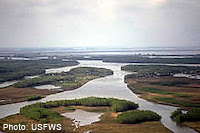

| Visitors Now: | |
| Total Visits: | |
| Total Stories: |

| Story Views | |
| Now: | |
| Last Hour: | |
| Last 24 Hours: | |
| Total: | |
Pricing Ecosystem Services: can conservation be achieved through economic values?
Came across an interesting article in UK’s The Guardian, What’s Wrong With Putting a Price on Nature?, that addressed the concept of placing a price or economic value on the ecosystem services that nature provides. What is a forest’s ability to sequester carbon worth? How much would it cost to secure land and maintain it’s undeveloped state if that helps provide a local source of fresh water?
Trying to place a monetary value on ecology has been around for a while as a concept. It is often referred to as valuating ecosystem services, and it has been applied in several circumstances that have proved to be successful. Determining a value of a live shark in related tourism dollars, as opposed to the revenue gained from a caught shark, has been used as a supporting argument for marine protected areas or shark sanctuaries. And as shark conservation becomes more and more and international regulatory issue, economics plays a greater role in moving policy than does the emotional reaction to shark finning.
The Guardian reported, “Stuart H. M. Butchart, a researcher at BirdLife International, replies that embracing the ecosystem services idea doesn’t necessarily mean abandoning the argument that species and habitats have intrinsic value. But making the economic case often ‘has more resonance’ for decision-makers.”
However, pricing ecosystem services has plenty of critics. There is concern that when economics forces get involved in determining the pluses and minuses of any ecological areas, you can find many of the same abuses that occur in the financial arena. Undervaluing property, making environmental changes to cut costs that can then have serious environmental consequences, and just the idea that the environment could be turned over to the same free market forces – big corporations, etc. – that caused some of our ecological challenges in the first place.
I don’t see it as a concept that can be applied broadly, like some silver bullet to all of the environment’s problems. If it were to be considered at all, it must be on a case-by-case basis. However, in the realm of international environmental policy, economics can often play just as influential a role as scientific data and intrinsic value.
The article in the Guardian, written by Richard Conniff, is quite in-depth and I would recommend that you take a few minutes and read it. You might find yourself to be in support of the concept or completely opposed, but at the very least, it must be considered as a strategic tool in some situations for selling conservation to those who may feel threatened by environmental policymaking that is done without a thorough concern for all that have a vested interest – the environment, threatened species, mankind itself and . . . business.
Source: The Guardian
2012-10-19 00:20:59
Source: http://rtseablog.blogspot.com/2012/10/pricing-ecosystem-services-can.html
Source:




